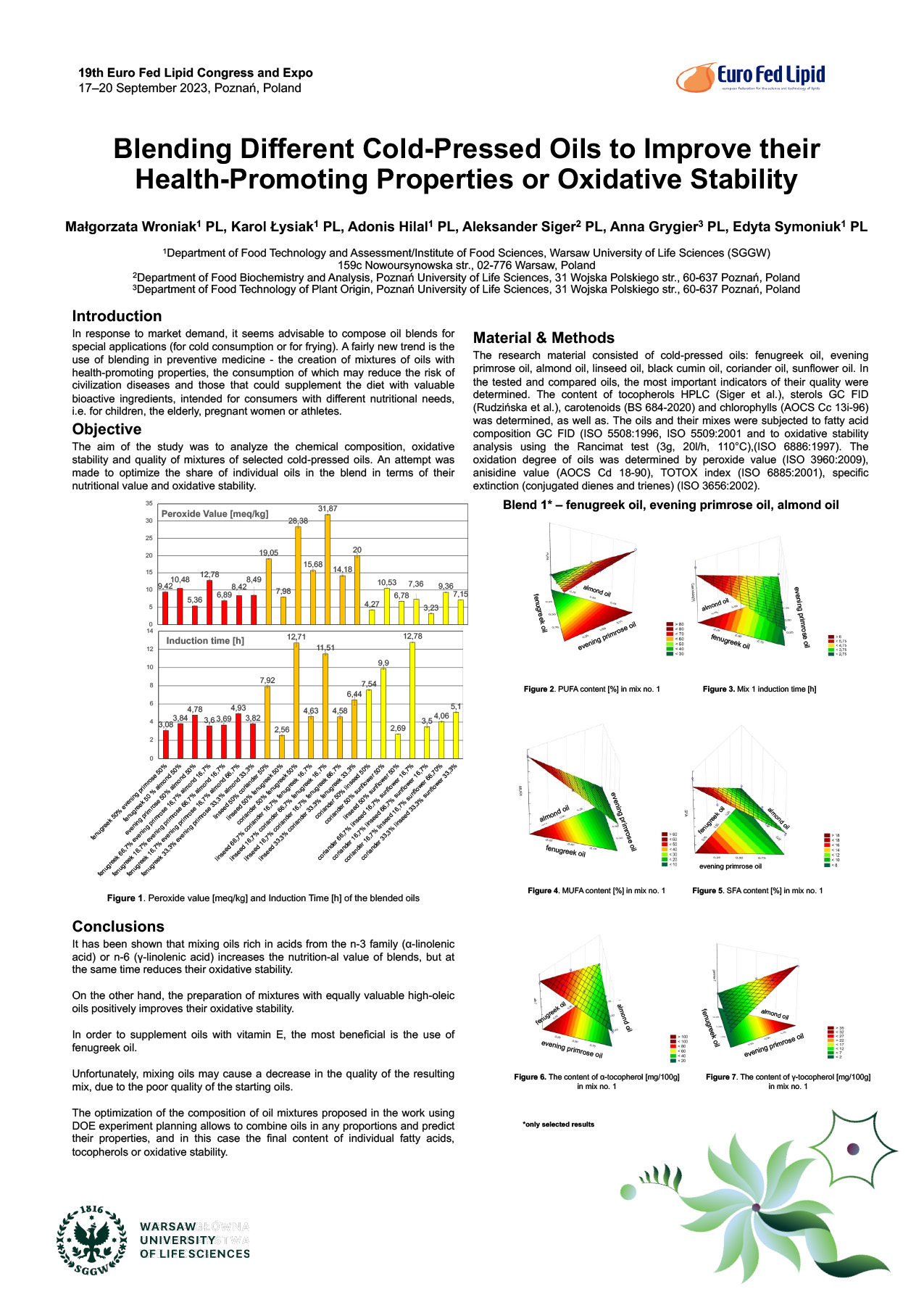In response to market demand, it seems advisable to compose oil blends for special applications (for cold consumption or for frying). A fairly new trend is the use of blending in preventive medicine – the creation of mixtures of oils with health-promoting properties, the consumption of which may reduce the risk of civilization diseases and those that could supplement the diet with valuable bioactive ingredients, intended for consumers with different nutritional needs, i.e. for children, the elderly, pregnant women or athletes. The aim of the study was to analyze the chemical composition, oxidative stability and quality of mixtures of selected cold-pressed oils. An attempt was made to optimize the share of individual oils in the blend (fenugreek oil, evening primrose oil, almond oil, linseed oil, black cumin oil, coriander oil, sunflower oil) in terms of their nutritional value and oxidative stability. The content of tocopherols, sterols of carotenoid and chlorophyll dyes was determined, as well as. The oils and their mixes were subjected to oxidative stability analysis using the Rancimat test. The oxidation degree of oils was determined by means of the determination of peroxide number, anisidine number, TOTOX index and specific extinction (conjugated dienes and trienes). It has been shown that mixing oils rich in acids from the n-3 family (alfa-linolenic acid) or n-6 (gamma-linolenic acid) increases the nutrition-al value of blends, but at the same time reduces their oxidative stability. On the other hand, the preparation of mixtures with equally valuable high-oleic oils positively improves their oxidative stability. In order to supplement oils with vitamin E, the most beneficial is the use of fenugreek oil. Unfortunately, mixing oils may cause a decrease in the quality of the resulting mix, due to the poor quality of the starting oils. The optimization of the composition of oil mixtures proposed in the work using DOE experiment planning allows to combine oils in any proportions and predict their properties, and in this case the final content of individual fatty acids, tocopherols or oxidative stability.
